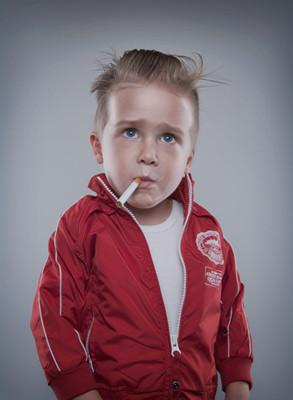Here's something you might have figured out at your high school reunion or by Facebook-stalking your old classmates:
在高中同学聚会或者Facebook上隐身浏览时,你可能已经意识到:
being one of the cool kids does not necessarily mean being cool for life.
要做一个酷小孩并不是需要一生都扮酷。
And now, a study in the journal Child Development confirms that suspicion.
现在在《儿童发育》杂志上发表的一项最新研究已经证实了这种猜测。
Researchers followed ethnically and racially diverse suburban and urban kids from early adolescence to early adulthood.
研究人员们从青少年初期到青年初期依照民族,城市及郊区的不同划分对孩子们进行了调查。
The kids who were deemed cool at a young age were high-status individuals with romantic relationships who broke rules and laws.
这些孩子们都被认为在年龄较小的时候比较酷,我行我素并且不喜欢循规蹈矩。

But they were no longer viewed that way by peers by the time they were in their early 20's.
但从20多岁开始他们便不会被同辈人这么看了。
The pseudomature behavior that seemed so admirable at a young age lost cache as the other kids gained actual maturity.
这种假成熟行为在少年时期会被当作一件十分值得钦佩的个性但随着其他孩子长大便不觉其中神秘。
Meanwhile, as the young James Deans and Miley Cyruses aged they had to engage in ever-riskier behavior to keep thinking of themselves as cool.
同时,当年轻的詹姆斯邓恩斯和米莉库鲁塞斯逐渐长大,他们也不得不开始投身于曾经被认为比较冒险的事业从而在精神上继续保持自己很酷的这种认知。
By their early twenties, they were more likely to have drug and alcohol problems, relationship issues and criminal involvement.
而到了20多岁的年纪,他们很可能面临咳药以及酗酒,发生情感纠葛并且伴有犯罪记录。
Turns out being a cool kid has a really short shelf life.
结果表明孩子们扮酷只会维持很短的时间。



